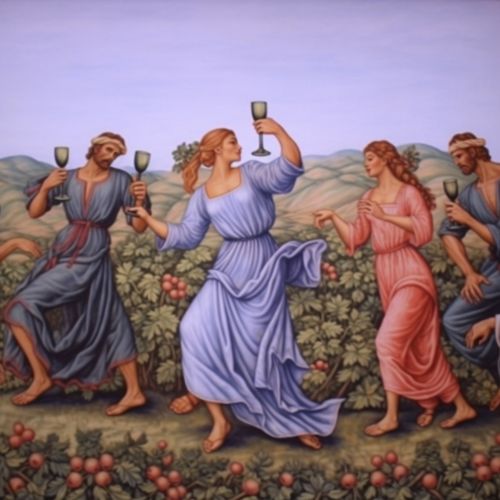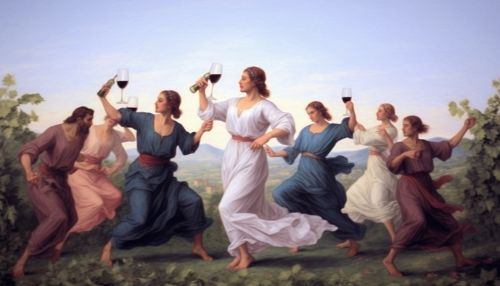Dionysian Mysteries
Origins and History
The Dionysian Mysteries were a ritual of ancient Greece and Rome which used intoxicants and other trance-inducing techniques (like dance and music) to remove inhibitions and social constraints, liberating the individual to return to a natural state. It also provided some liberation for those marginalized by Greek society: women, slaves, outlaws, and non-citizens. In their final phase the Mysteries shifted their emphasis from a chthonic, underworld orientation to a transcendental, mystical one, with Dionysus changing his nature accordingly. By its nature as a mystery religion reserved for the initiated, many aspects of the Dionysian cult remain unknown and were lost with the decline of Greco-Roman polytheism; modern knowledge is limited, pieced together from sculpture, vase painting, and descriptions in literature and inscriptions.


Rituals and Practices
The rites of the Dionysian Mysteries were held in the spring and centered around a cult statue of Dionysus. The rites began at dusk, with a procession that included a representation of the god Dionysus, usually in the form of a large phallus, which was carried from a sanctuary to the place where the rites were to be performed. This procession was followed by a ritual purification of the participants, who then reenacted the story of Dionysus. The reenactment included the myth of his birth, his death at the hands of the Titans, and his resurrection. This was followed by the "telete", which included an invocation of Dionysus, a libation, and an animal sacrifice.
Significance and Influence
The Dionysian Mysteries had a significant influence on Greek and Roman culture. They contributed to the development of theatre and drama, provided a religious outlet for those marginalized in society, and influenced other religious practices and beliefs. The Mysteries also had a significant influence on the development of Christianity, particularly in terms of ritual practices and theological concepts.
